
General Information
Location
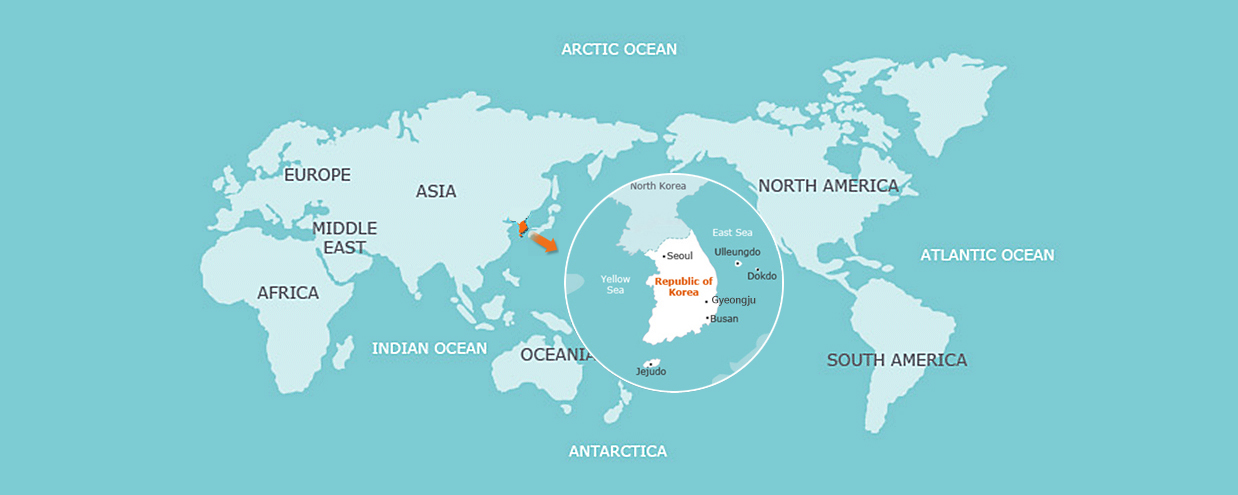
Korea is located on the Korean Peninsula in East Asia. The peninsula extends about 1,000 km from the Asian continent to the Pacific Ocean, bordered by the Yellow Sea to the west and the Sea of Japan (East Sea) to the east. To the south, it is separated from Japan by the Korea Strait.
Korea boasts a rich history and cultural heritage, with modern influences like K-Pop, films, and fashion gaining global recognition. Traditional landmarks such as palaces and temples, along with diverse food culture, are an integral part of Korea’s identity. About 70% of the country is mountainous, offering stunning natural landscapes and numerous scenic spots for tourists.
Korea boasts a rich history and cultural heritage, with modern influences like K-Pop, films, and fashion gaining global recognition. Traditional landmarks such as palaces and temples, along with diverse food culture, are an integral part of Korea’s identity. About 70% of the country is mountainous, offering stunning natural landscapes and numerous scenic spots for tourists.
Language
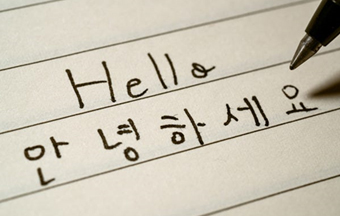
-
Korean, like Hungarian, Turkish, Mongolian, and Finnish, belongs to the Ural-Altaic language family. The Hangul script, created in 1443 by King Sejong the Great and his scholars, is composed of 10 vowels and 14 consonants. It was designed to be a simple, logical system for representing the sounds of the Korean language. Hangul is often praised by linguists for its creativity and practicality, making it both easy to learn and highly efficient.
Summer Weather

-
The summer in Korea starts in June and is characterized by hot and humid weather. This period marks the beginning of the monsoon season, with frequent rainfall and temperatures ranging from 25°C to 30°C. The high humidity and heat can make it uncomfortable, so it's advisable to carry an umbrella, raincoat, or rain boots. After the monsoon, the weather turns hotter and drier, signaling the peak of summer.
Currency
The official currency is the South Korean won (KRW), but the main credit cards and US dollars are accepted in most tourist points of interest.
There are banks, ATMs and exchange houses available, however, it is recommended to always carry some cash.
| 1,000 won | 5,000 won | 10,000 won | 50,000 won | Coins |
|---|---|---|---|---|
 |
 |
 |
 |
 100 won 100 won
 500 won 500 won
|
Tip & VAT
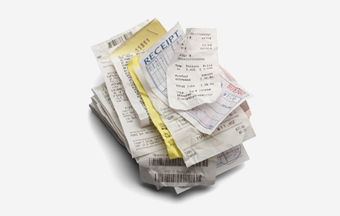
-
In Korea, service charges are included in hotel and restaurant bills, and tipping is not a common practice. Foreign tourists can receive a 10% VAT refund on Duty Free purchases over KRW 50,000 (about USD 43), as long as the goods are taken out of Korea within three months. Refunds can be claimed at Incheon International Airport with receipts and goods.
Electricity
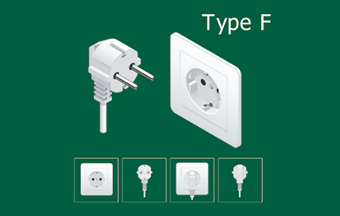
-
The standard voltage used in Korea is 220V. A power plug adapter is required if you use different plugs and sockets in your country of residence. Participants are advised to check with the hotel in advance, as most hotels can offer outlet converters for 110V and 220V.
Emergency Phone Number
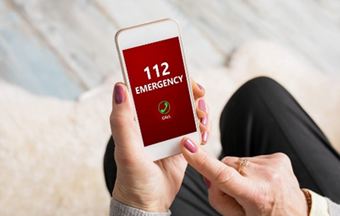
-
Emergencies for Fire, Rescue & Hospital Services 119 Police 112 First Aid Services 129 Medical Emergency 1339
Useful Website
| Korea Tourism Organization | https://english.visitkorea.or.kr/svc/main/index.do |
|---|---|
| Busan Tourism Organization | https://bto.or.kr/eng/Main.do |
| Visit Busan | https://www.visitbusan.net/EN/index.do |
| Korea Immigration Service | https://www.immigration.go.kr/immigration_eng/index.do |
| Ministry of Foreign Affairs and Trade | https://www.mofa.go.kr/eng/index.do |
| Incheon International Airport | https://www.airport.kr/ap/en/index.do |
| Gimhae International Airport | https://www.airport.co.kr/gimhaeeng/index.do |